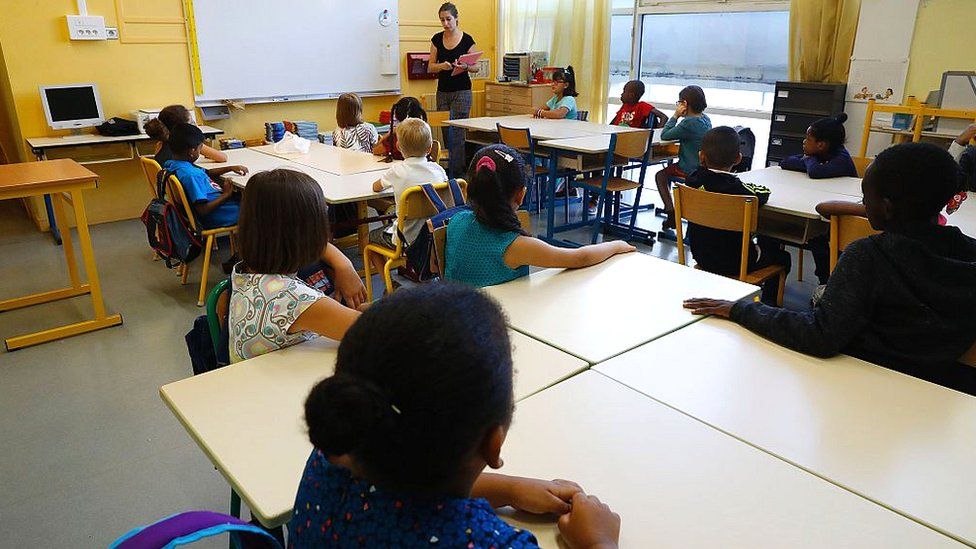Consternation over suggested French grammar change
- Published

The suggestion by a pair of Belgian teachers to drop a rule of grammar drilled into every French speaker at an early age has led to some amusement and consternation in France.
The teachers say rules for past participles that follow the verb avoir (to have) should be simplified.
The change would save some 80 hours of teaching time, they argue.
It has been endorsed by the linguistic authorities of Belgium's French-speaking Wallonia region and Brussels.
Currently, the rule is that the past participle of a verb does not agree with the direct object of a sentence if it comes after it, but it does when the object comes before the participle.
So for instance, in the sentence j'ai mangé des frites (I ate chips), mangé remains the same. But in the sentence les frites que j'ai mangées (the chips that I have eaten), the participle agrees with the word chips, which is feminine and plural.
The two teachers, Arnaud Hoedt et Jérôme Piron, argue the rule is overly complicated and inconsistent, and that the participle should remain unchanged regardless of the position of the object in the sentence if used with the verb to have.
"Schoolchildren ask, why before and not after?" they said in an opinion piece in Liberation (in French).
The rule was imported from Italy by pedants in the 16th Century and is being dropped in everyday use, the pair argue.
The suggestion led to anger and derision on social media, with some arguing the change would amount to ignoring the subtleties of the language.
One teacher and grammar expert said the change was akin to "wanting to raze all the little streets in an old city".
Allow Twitter content?
This article contains content provided by Twitter. We ask for your permission before anything is loaded, as they may be using cookies and other technologies. You may want to read Twitter’s cookie policy, external and privacy policy, external before accepting. To view this content choose ‘accept and continue’.
Another user says if the rule is dropped, why not also drop the offside rule in football? That way, he argues, schoolchildren will be able to spell phonetically and football players will be able to play with their hands.
Allow Twitter content?
This article contains content provided by Twitter. We ask for your permission before anything is loaded, as they may be using cookies and other technologies. You may want to read Twitter’s cookie policy, external and privacy policy, external before accepting. To view this content choose ‘accept and continue’.
Two years ago, suggested new spellings for more than 2,000 French words sparked furore and accusations of dumbing down, after the Academie française proposed changes including the deletion of the circumflex accent (ˆ) and hyphens in some words.
France's education minister at the time said the changes would not culminate in the end of the circumflex, and that old and new spellings would both remain correct.
- Published20 February 2016
- Published5 February 2016
- Published5 February 2016
- Published21 January 2016